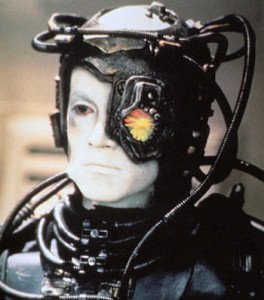Technology has advanced at an exponential rate, helping make the impossible possible. Humanity is affected by its influence. Every time one turns on a cell phone, laptop or even a calculator, there are years of technological advancement inside their plastic and aluminum bodies.
In the ‘80s, it was said that no computer would ever beat a human at the game of chess. In 1996, IBM challenged world chess champion Garry Kasparov to a game against their chess-computing creation, known as Deep Blue. Though Deep Blue lost in 1996, IBM came back for another round in 1997, beating Kasparov. While this was an epic achievement, it was not surprising that a machine could do well in a game of logic like chess. Nor would this be the last time that IBM created a computational giant.
Blue Gene and Watson would be IBM’s next marvels. Blue Gene created complex simulations of bimolecular phenomena, while Watson competed — and won — in “Jeopardy!” against two of the show’s most famous champions, Ken Jennings and Brad Rutter. Some view these events as a clarion call that computers are slowly becoming more powerful and therefore are soon to take over the role of dominant species on the planet. This is simply not the case: our relationship with machines is symbiotic.
Amidst the fires of World War II, the first computer was developed. These computers blanketed walls and filled entire rooms. They were the first to use binary arithmetic and were instrumental in cracking the German Enigma coding system. Computers gave the Allies a tactical advantage, and their usefulness continued well after the war.
The computer introduced a new world of opportunity. Programming became a career and programmers created complex codes to make everyday life easier. Computers became connected through the Internet, and upon that sits the World Wide Web, the largest collection of human knowledge ever assembled in one place. The local library was rendered virtually unnecessary.
While technology had also simplified the search for information, it also increased the world’s awareness. Social media and networking online connected humans together, making the Earth a much smaller place. Every friendship, acquaintance or passerby was on the grid until almost the entirety of the world was mapped based on individuals rather than landmasses. This use of social media greatly aided the situation in Egypt, for example. When Mubarak refused to step down, Egyptians used this web of individuals to stand together and call out against a government they found repressive.
Medical science has also seen amazing innovations. The da Vinci surgical system is one of the first robotically assisted surgical devices. While it still requires the use of a human doctor to guide its movements remotely, it’s not a stretch of the imagination to think that an automated doctor is in our future, removing the error of traditional surgery and the chance of infection. Things once considered miracles, giving sight to the blind and allowing those handicapped a second chance at life, are all possibilities for the future.
Humans, as it stands today, control technology. There is no threat of iPods rebelling against their owners, or that Deep Blue will orchestrate a robotic uprising of assembly line robots. However, technology like Watson and Deep Blue will only become more sophisticated, until we reach what is called “technological singularity.” This is a term used to mean the point where technology builds itself, thinks freely and evolves. It does not mean that humanity will meet its computer masters at this time, but rather that humanity will reach technological nirvana.
Man and machine will become one — though not like the Borg. The boundaries of human intelligence will be pushed by computers implanted in the brain, human frailty surpassed by enhanced skeletal-muscular systems and even immortality will be in the future of humanity.
It’s a brave new world where humanity itself will evolve as quickly as the machines and technology that they have developed.





